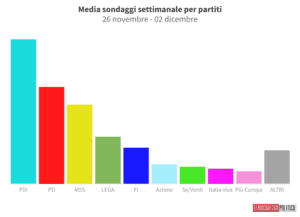Il Vaticano e l’omofobia

Le sconcertanti tesi dell’Arcivescovo Tomasi in sede ONU in materia di “diritto all’omofobia”
Il 22 marzo 2011 si è tenuto alla sede dell’ONU di Ginevra un dibattito generale dell’area Human Rights dedicato all’implementazione della Dichiarazione di Vienna tramite un programma di azione definito.
I temi trattati sono stati molteplici, e se tutti i convitati sono stati concordi nel definire i diritti umani una condizione imprescindibile per lo sviluppo della società umana ed una necessità inalienabile dei popoli, alcuni distinguo sono arrivati sulla definizione stessa di tali diritti.
Particolare scalpore ha suscitato l’intervento di Silvano Maria Tommasi (nella foto), Arcivescovo di Asolo (Veneto) dal 1999 e Osservatore permanente della Santa Sede per le Nazioni Unite dal 2003.
Di seguito il discorso integrale di Tommasi, come riportato da Radio Vaticana:
Mr. President,
the Holy See takes this opportunity to affirm the inherent dignity and worth of all human beings, and to condemn all violence that is targeted against people because of their sexual feelings and thoughts, or sexual behaviours.
We would also like to make several observations about the debates regarding “sexual orientation”.
First, there has been some unnecessary confusion about the meaning of the term “sexual orientation”, as found in resolutions and other texts adopted within the UN human rights system. The confusion is unnecessary because, in international law, a term must be interpreted in accordance with its ordinary meaning, unless the document has given it a different meaning. The ordinary meaning of “sexual orientation” refers to feelings and thoughts, not to behaviour.Second, for the purposes of human rights law, there is a critical difference between feelings and thoughts, on the one hand, and behaviour, on the other. A state should never punish a person, or deprive a person of the enjoyment of any human right, based just on the person’s feelings and thoughts, including sexual thoughts and feelings. But states can, and must, regulate behaviours, including various sexual behaviours. Throughout the world, there is a consensus between societies that certain kinds of sexual behaviours must be forbidden by law. Paedophilia and incest are two examples.Third, the Holy See wishes to affirm its deeply held belief that human sexuality is a gift that is genuinely expressed in the complete and lifelong mutual devotion of a man and a woman in marriage. Human sexuality, like any voluntary activity, possesses a moral dimension: it is an activity which puts the individual will at the service of a finality; it is not an “identity”. In other words, it comes from the action and not from the being, even though some tendencies or “sexual orientations” may have deep roots in the personality. Denying the moral dimension of sexuality leads to denying the freedom of the person in this matter, and undermines ultimately his/her ontological dignity. This belief about human nature is also shared by many other faith communities, and by other persons of conscience.And finally, Mr. President, we wish to call attention to a disturbing trend in some of these social debates: people are being attacked for taking positions that do not support sexual behaviour between people of the same sex. When they express their moral beliefs or beliefs about human nature, which may also be expressions of religious convictions, or state opinions about scientific claims, they are stigmatised, and worse – they are vilified, and prosecuted. These attacks contradict the fundamental principles announced in three of the Council’s resolutions of this session. The truth is, these attacks are violations of fundamental human rights, and cannot be justified under any circumstances.Thank you, Mr. President.

